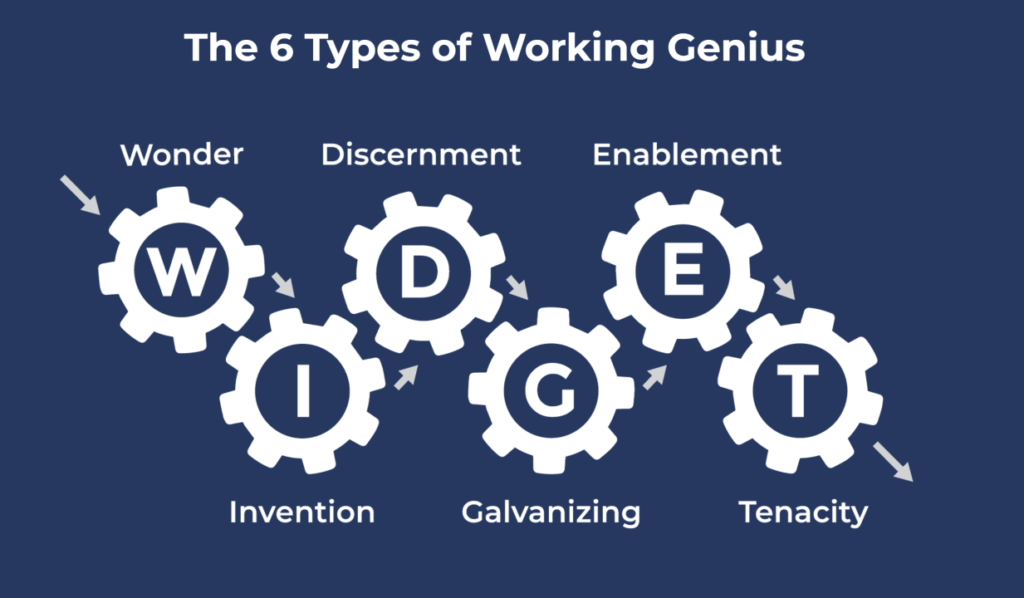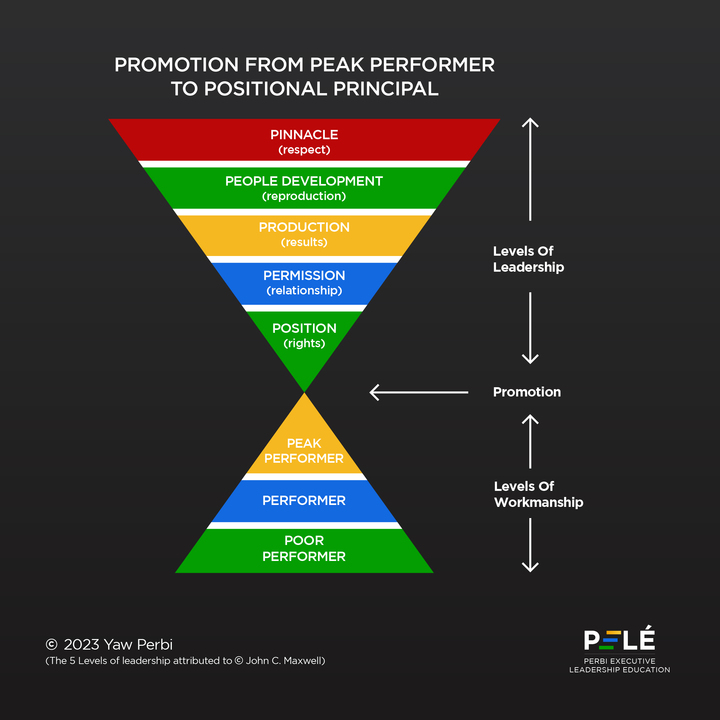
The Best Promotions are the Worst.
Here’s the worst thing about the best promotion. At one of my organizations, we recently had to let an excellent hire go. Come to think of it, we failed him. We failed him by promoting him.
You would think that all promotions are good but no. One of the worst kinds is being ‘elevated’ to become a leader just because you are an outstanding worker or producer. Working on stuff and excelling is very different from working with souls to excel. The reward for hard work is more work, weird yes, but the latter tends to be more mental work than manual —which most people find as more beneficial—also, more of working with people than working on things.
As one person shared about struggling with leadership upon her first promotion as a telco manager: “Within one month, I went from being the best programmer to the worst supervisor.” I’ve seen this happen to too many people in too many places. I grew up on the University of Ghana campus (both my grandfather and mother were professors there) and I would see time and time again fine lecturers promoted into leadership positions, from heads of department through deanship to vice-chancellorship and flail and fail. How many times have I said that a great chemist or erudite historian doesn’t necessarily make a great leader!
We do the same in the medical world, promoting top surgeons to head departments or if God doesn’t intervene, to head the hospital! When I was promoted to supervise the Military Polyclinic at the 37 Military Hospital in Accra, determining the doctors scheduling and all, in my opinion it was only because I wasn’t a bad doctor and had been around long enough. And no one gave me a minute’s training about leadership. Squat. Thank God I had been a private student of leadership for years prior.
It doesn’t start out as a bad thing; in fact, it is exhilarating at first for the recipient of the promotion. And the giver of the opportunity ordinarily also means well and feels good about it. But organizational leaders need to rethink the notion of making people supervisors, managers or leaders as a reward for diligent or even skillful individual technical work. It can backfire, seriously.
A STORY I CAN’T GET OVER
One of the most poignant illustrations of this phenomenon of worker/rewarded-as-leader is told by my mentor Bill George in his book ‘True North.’ It’s about the person who confessed upon her first promotion as a telco manager, “Within one month, I went from being the best programmer to the worst supervisor.” Here are some more details:
“It’s unbelievable how bad I was. I didn’t know how to delegate. When somebody had a question about their work, I’d pick it up and do it. My group was not accomplishing anything because I was on the critical path of everything. My boss saw we were imploding, so he did an amazing thing: He gave me every new project that came in. It was unreal. At 4:30 PM, my team would leave, and I’d be working day and night trying to dig through this stuff.
“Finally, I couldn’t take it any longer. I went to his office, stamped my foot like a 5-year-old, and said, “It’s not fairI have the work of 10 people:” He sad calmly, “Look out there. You have 10 people. Put them to work.” It was such a startling revelation. I said sheepishly, “I get it.”” [1]
If this person hadn’t eventually learned to lead people, she would never have made it to becoming president and CEO of the American Red Cross on June 23, 2008. Prior to that she had also held top management positions at AT&T Corporation and Fidelity Investments. She is a member of the board of trustees of Johns Hopkins University and the board of directors of DTE Energy.
This is Gail J. McGovern we’re talking about here, even recognized by Fortune magazine in 2000 and 2001 as one of the top 50 most powerful women in corporate America. Alas, not all of such stories that begin with such ‘good promotions’ end well, and even when they do, not without significant damage to many.
DIAGNOSIS OF LEADERSHIP FAILURE POST PROMOTION
It takes both a different mindset and skill set to move from being an excellent worker to being a good leader, let alone a great one. Yet we come to the world of work with both a mindset and skillset that ill-prepare us for leadership success. Even prior, we are socialized largely to excel as individuals. I concur with Bill George that this unpreparedness is attributable to our upbringing:
“…so much of our early success in life depends upon individual efforts, from the grades we earn in school to our performance in individual sports to our initial work assignments. Admissions offices and employers closely examine those achievements and use them to make comparisons. …As we are promoted from individual roles to leadership, we believe we are being recognized for our ability to get others to follow us…
“To become authentic leaders, we must discard the myth that leadership means having legions of supporters following us as we ascend to the pinnacles of power. Only then can we realize that authentic leadership is serving people… How else can they unleash the power of their organization unless they motivate people to reach their full potential? … Only when leaders stop focusing on their personal needs and see themselves as serving others are they able to develop other leaders.” [2]
ROAD MAP TO LEADERSHIP SUCCESS POST PROMOTION
If Maxwell’s 5 Levels of Leadership is anything to go by, then when one is promoted from the top echelons of the worker floor (Peak Performer/Worker Level 3 in diagram above), they only end up at Level 1 of leadership: Position. The lowest level of leadership—the entry level, if you will—is position. People only follow if they believe that they have to (otherwise you might use your powers of carrot and stick). If this leader takes the hint and invests in their leadership growth, they can move to Leader Level 2—Permission—which is based on relationship. At this level, people choose to follow because they want to.
You will notice that even what Gail was trying to get done at work, putting the 10 people ‘out there’ to work, is still only mid-level in the Maxwell scheme of things: Production. Good leaders know how to motivate their people to GTD – get things done! And getting things done is what Leader Level 3 is all about. But they’re only good; not great. Leader Level 4 — People Development—can be summed up in another word: Reproduction. One’s goal at this level is to identify and develop as many leaders as one can and investing in them to help them grow. Here (Leader Level 4), you’re producing people as leaders, not producing work through people (Leader Level 3).
The most challenging and highest level of leadership, Level 5, is the Pinnacle. According to Maxwell, it requires longevity as well as intentionality in investing one’s life into the lives of other leaders and organizations for the long haul (while growing yourself as lifelong learner all the while). People follow such because of who they are and what they represent. Their leadership gains a positive reputation, betters still, one has earned respect.
Note that Level 5 leaders develop Level 5 organizations. I will add that in the leader verses institutions debate—as to whether it is strong leaders or strong institutions we need to develop long-term—I would say that it takes Level 5 leaders to build the structures and systems that produce strong institutions. This is the realm of legacy. As a result, Level 5 leaders often transcend their position, their organization, their industry and perhaps even their nation.
And nothing accelerates leaders through these levels, from 1 to 5, like intentional coaching.
CONCLUSION
As you can tell already, it’s a long way from being the best worker to being a great leader. There is nothing more painful than a “highly capable individual” (as Jim Collins puts it) thinking that just because they’ve been a peak performer and ‘made it’ onto the supervision, management or leadership floor that they’ve got what it takes to run the ship. One’s productive contribution through individual effort in knowledge, skills and good work habits won’t cut it. As promoters, if we promote people and fail to plan a leadership growth path alongside that, we’ve inadvertently planned to fail them.
Congratulations on your promotion, but to ensure that dream-come-true doesn’t become a nightmare, and the reward a trap instead, you must be aware that it’s a floor and not the ceiling. Top floor workers’ triumphal entry through the golden portal of promotion only lands you as a ground floor leader. Welcome to Level 1 of Leadership: position. Just that.
References
[1] Bill George. True North: Becoming an Authentic Leader. Second edition; expanded and updated edition. Jossey-Bass, Hoboken, NJ, 2015, pg. 186-187.
[2] Ibid, pg. 185

The Inadvertent Lid of Political Leadership: My One Regret and Heartache.
It’s been a very busy few weeks. The last one in particular was the kind that Nelson Mandela would call “‘impossible’ until it’s done.” The very morn of the dawn I arrived back in Accra from Kenya, the first day of the work week, I had to be speaking at about 10am at an African Young Professionals Conference. That same week my team at PELÉ and the Ghanaian contingent of the African-wide BCA Leadership hosted the power-packed, two-day Made in Africa Leadership Conference (MLC) from June 13 to 15. Then there was a Youth Rally in the vicinity of the University of Professional Studies (June 15 evening) where l was billed to speak as well. And then to crown that week, The HuD Group, which I founded with eight of my friends in 2003, held a press launch of our twentieth anniversary and simultaneous launch of three legacy projects.
In all of this business and busyness, one thing that has come through very clearly is that leadership is absolutely important–that everything does rises and falls on leadership. I tried to make that point in my opening remarks to the distinguished ladies and gentlemen convened at the Marriot for the aforementioned MLC 2023. Even this morning, as I was training the executive team of one of our PELÉ clients, a tech start-up, Maxwell’s Law of the Lid came to the fore: leadership is the lid on their personal level of effectiveness as well as the organization’s impact that it would ever make.
Leadership is so important that every professional must have it, everyone in every sector of the economy must possess it, and everyone at every level of society must have it but especially leadership is too important to leave it to politicians alone. “Leadership is cause,” as one other leadership expert puts it, “everything else is effect.”
As we celebrate 20 years of The HuD Group, we can testify that God has done amazing things in, on, with and through The HuD Group. We started in Ghana, moved to Cote D’Ivoire, then to Nigeria and Canada and now have a presence in 24-25 countries on all continents, having incredible impact on people in every sphere. In fact, at the anniversary launch last week Friday, several VIPs like celebrated, young, award-winning journalist Manasseh Azure Awuni, shared how The HuD Group had impacted them. But I shared with the audience my one regret: that in all this 20 years of The HuD Group we did not give enough attention to the political space in particular. Of course, it is not that we did nothing at all but knowing what l know now and seeing how successes in all these other areas of life have literally been eroded by what has happened in the political space, especially in Ghana, that really breaks my heart.

This brilliant friend just graduated from Columbia Law School. I told her I was going to share this beautiful photo on social media as it illustrates my frustration that a lioness like her will be returning home to Ghana only to be led by goats.
THE SKY ISN’T THE LIMIT; POLITICIANS ARE
This has been a season of lots of graduations. I’ve seen flashy photos from Harvard to Fuller, and been physically present at inspiring commencements like Ashesi’s about three weeks ago. First, I’ve been excited about all these amazing graduates bustling with energy and vision and drive, some having done some earthshaking capstone projects and all. Yet all these amazing people formally graduated by our best academic establishments and semi-formally by The HuD Group in the last 20 years—and yes, some of us have been though all kinds of fellowships from Aspen and Eisenhower to Tutu—are restricted by what happens in the political space because everything rises and falls on that leadership. Political leadership is the lid over all our collective effectiveness and greatness.
If anyone told these graduands that the sky is the limit, that isn’t wholly true; our political leaders are. No I’m not a whiner; I am precisely the opposite of that, which is why I’m a serial entrepreneur. So I believe in creative ways around ‘the system’ but as the august chairperson of the HuD anniversary launch, Madam Yawa Hanson-Quao, had earlier said at the MLC, “We cannot entrepreneur our way out of bad governance.” Political leadership is the lid over all our other attempts at leadership.
Political leadership is the lid over all of our collective effectiveness and greatness in all of our fields of work and spheres of influence. We’ve got to get up and take the political space seriously and not let anyone who is not a selfless, authentic, transformational leader make their way there! Because then, it doesn’t matter how the collective brilliance of all of us is, there would be a lid over the rest of us. A good illustration is the proverbial army of sheep led by a lion versus or an army of lions led by a sheep.
At the end of the day, every sector, and every level of our society needs at least good leaders, even better, great leaders! Otherwise like John Gardener aptly puts it, “The society which scorns excellence in plumbing as a humble activity and tolerates shoddiness in philosophy [or politics for that matter] because it is an exalted activity will have neither good plumbing nor good philosophy: neither its pipes nor its theories will hold water.”
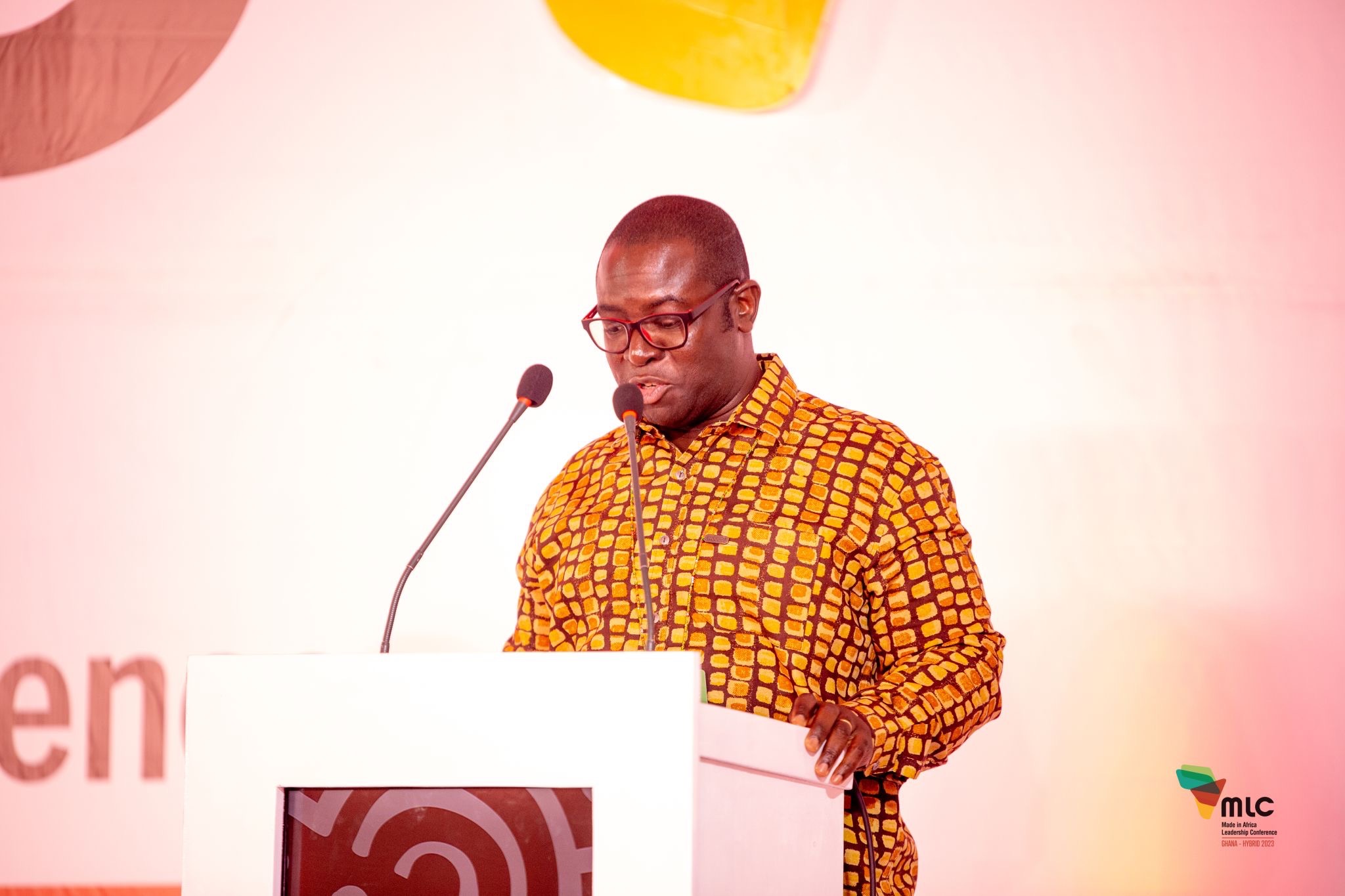
Sans Leadership–So Much to Lose, Too Much to Lose.
The following was shared as a TED-like talk to open the Made in Africa Leadership Conference by BCA Leadership on June 14 at the Marriot Hotel, Accra, Ghana.
My uncle died. My mom’s youngest brother. He came over to Ghana from the United States, where he had lived for decades, and fell ill. He died in the very hospital I worked in at the time. In fact, he died on my ward. But I can swear it wasn’t his disease that killed him. It was leadership, or rather the lack thereof. Leadership is too important for doctors not to have it.
Some of the most important things in life are not taught in school, like leadership. When some of my friends from university got into government I did exhort them: “Nobody taught us Jack about leadership. LEARN LEADERSHIP! CONTRACT COACHES! Leadership is not just caught; it is taught.” Did they listen? Ha!
Ironically, communal, national, continental or even global leadership, is a deeply person-al thing. It takes deeply transformed leaders to deeply transform society. Authentic leadership begins with aligning what goes on in a leader’s head and heart with True North. Leadership principles or True North are no respector of persons—red or yellow, black or white.
Two days from now, we will be officially launching the 20th anniversary celebration of The HuD Group, a holistic leadership organization started by nine young Africans in Accra. From one country in West Africa, it now has presence in 24 countries, on all six continents. Out of Africa to the Rest. From a former Rwandan refugee now in executive leadership in Uganda to a former child soldier in Sierra Leone now a high-ranking bank official in his homeland, to a Chinese-Canadian who we trained via Skype when she was an international medical student in Australia, a lot of transformation and impact has been achieved but in Ghana in particular I feel much of our gains have been eroded by not giving adequate attention to political leadership.
So today is the first of two important occasions this week where I will be drumming home this point with all my heart, liver, spleen and intestines: “Leadership is too important to leave it to politicians alone.” AND with 90% of African businesses being SMEs, creating 60-80% of our jobs and accounting for 40% of our GDP, what we do here at MLC this week for African leaders and African leadership is wildly important.
When two 14-year old stowaways from Guinea, Yaguine and Foday, froze to death in the landing gear of an Airbus 330 from Conakry to Brussels, they had on them a hand-written letter labelled: IN CASE WE DIE… to the Messrs. members and officials of Europe.
They said, among other things, “We have the honor and pleasure and great confidence in you to write this letter … we appeal to your solidarity and kindness for help in Africa. …we, African children and youth, ask you to create a great, efficient organization for Africa to allow us to progress. …we want to study and we ask you to help us in Africa to study to be like you.”
You should find and read the whole letter here—it will thaw and tear your heart. And that was 24 years ago. Has anything changed?
It’s time for Leadership Made in Africa that makes Africa work for Africans. BEFORE WE DIE. Yes we can, partnering and collaborating to reimagine and reform the Africa that we want! Twende! Let’s go! Let’s do this!
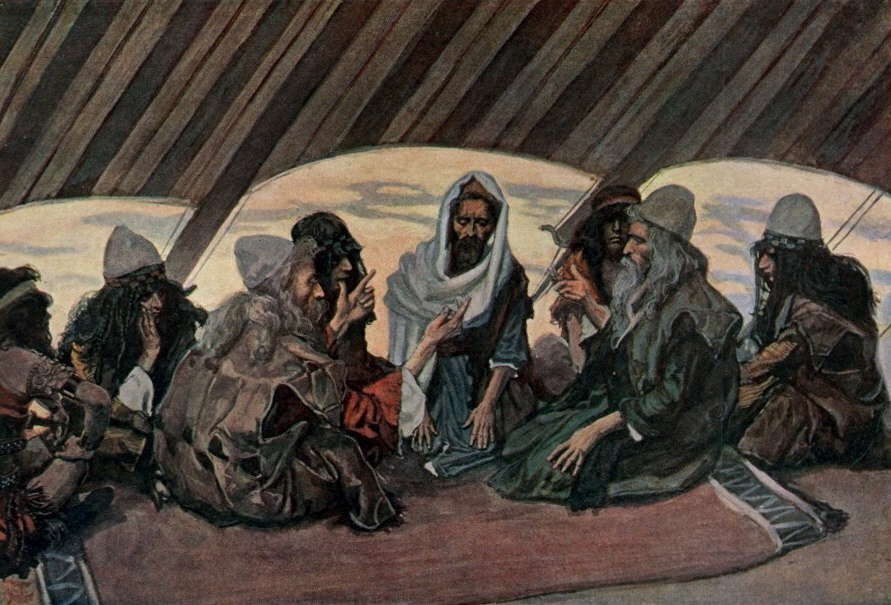
Competence is Character.
Photo credit: Jethro and Moses, watercolor circa 1900 by Jacques Joseph Tissot (1836–1902), courtesy of Wikimedia.
While a lot of #leadership thinking is that leadership comprises #competence AND #character, for others like Jethro of Midian, competence IS character. Discuss.
For the Eager Beaver:
“Listen now to me,” Jethro advised Moses his son-in-law regarding leadership delegation, “Select capable men from all the people–men who fear [revere] God, trustworthy men who hate dishonest gain–and appoint them as officials over thousands, hundreds, fifties and tens” (Exodus 18). Jethro, also known as Reuel, was a Kenite shepherd and priest of Midian.
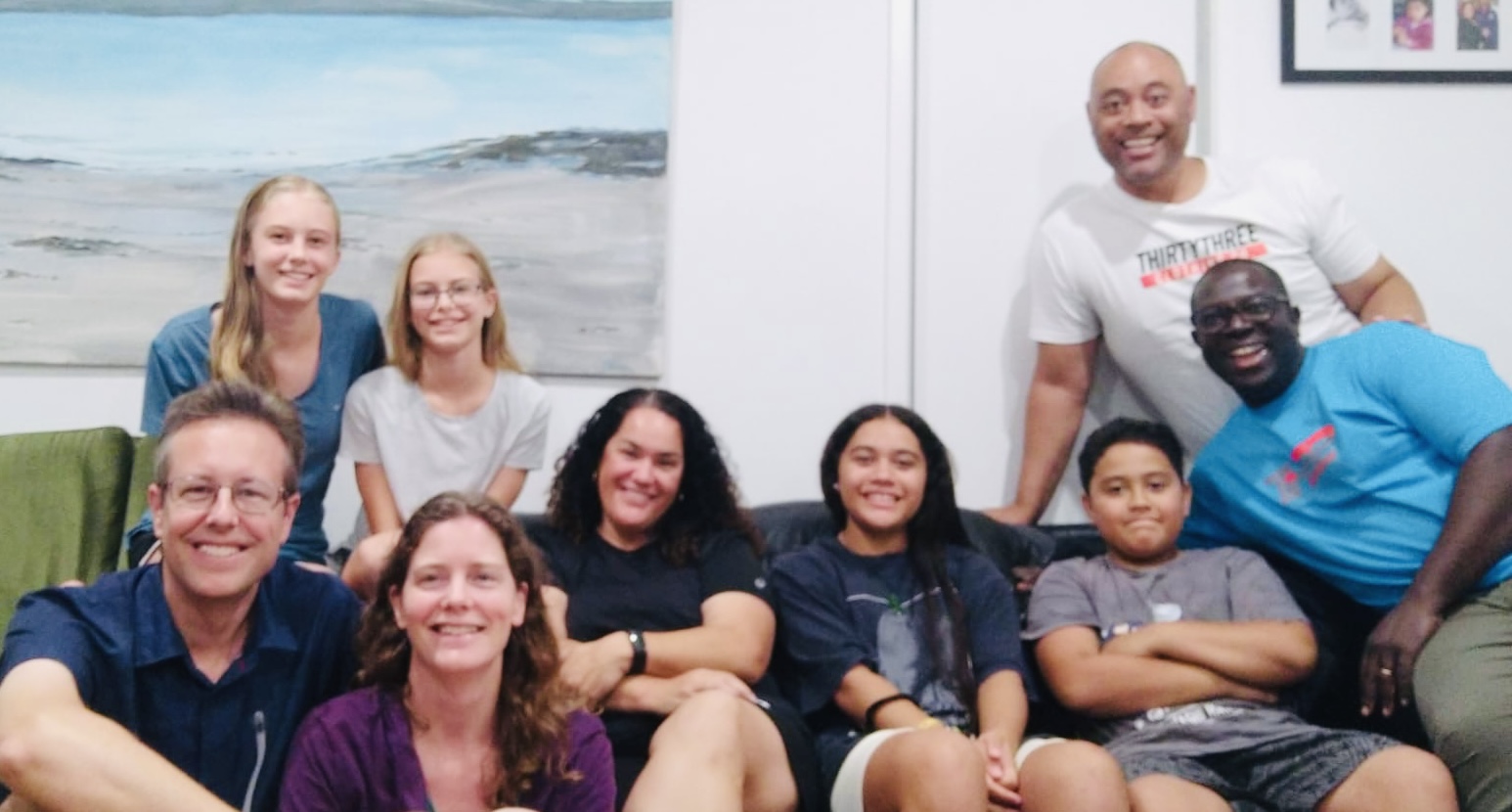
You may have my bag but not my friends.
An exhortation on not allowing circumstances and people who know no better rob you of the wealth of intercultural relationships in our diverse, complex and globalized world.
MYSTERY OF THE MISSING BAG–WHY ME?
I was the last one to walk out of the airport arrival hall at Gold Coast in Australia. I had all the customs and immigration officers to myself, nearly a dozen, yet I gave them absolutely nothing to do. I not only had nothing to declare, I had no bag! Apparently, my only checked-in bag on the three-and-a-half hour NZ 179 flight from Auckland, New Zealand to Gold Coast, Australia had never been loaded onto the plane in the first place. I had waited and waited in vain for it until when nearly everyone on this very full flight had left the baggage hall and Carousel 6 was literally bare, I approached the Baggage Counter to complain about my missing travel companion.
The chap at the Air New Zealand counter was very nice but his assumption that I was going to be in Gold Coast ‘forever’ fascinated me (I’m surprised I wasn’t annoyed).
“Oh sorry sir but your bag will be delivered to you at home tomorrow,” said he.
“Tomorrow? Who told you I’ll still be here tomorrow,” I quizzically retorted.
It was obvious he felt he was doing me a great favour by offering me special at-your-door delivery but I was not amused. Not only did I need the items in my bag today; I was not going to be in Gold Coast in the morrow. This was a 24-hour meet and greet and off to Adelaide, another two-and-a-half hour flight to the western half of the Australian subcontinent.
By now my mind had begun to formulate various plausible permutations why I alone (for I saw no one else approaching the Baggage Counter to lodge a complaint) had my bag delayed. Why me? What was so unique about me that my bag would be singled out for NOT delivery? The only other thing I knew made me different was that I was the only Black African on the flight. Did this have to do with anything?
Interestingly, as I passed through the Auckland airport earlier I had taken a photo in front of the All Blacks memorabilia shop and tweeted “I wonder why I feel so #welcome. #AllBlacks vs #WhitesOnly. How the times have changed–this one, for the better. #NewZealand rocking it!” Did someone spot that and nab me? Was I too quick to praise New Zealand for progressive race relations? Did this bag saga really have anything to do with my Black skin at all? It is easy to read racism into nearly everything once you’ve been a victim of that dehumanizing attitude and act, I must admit. I resist that. I resent that, even.
MYSTERY OF INTERCULTURAL RELATIONSHIPS–SO WORTH IT
All those thoughts and feelings totally dissipated once I set eyes on the last two people left in the welcome area: Julia and Billy-Jo, two of my special friends from the 1997 cohort of the World Vision Youth Ambassadors! Sooo worth the hustle! I had had the privilege of being a World Vision Youth Ambassador for Ghana in 1996 and had the additional honour of returning in Julia and Billy-Jo’s year as a staff intern, together with Claudia from Colombia.
Julia had represented Canada back then and for her, this was our third in-person meeting since 1997 (Prague 2015, Ottawa 2021 and now Gold Coast 2023). But Billy, I had not seen in-person at all since our teenage years! Billy-Jo (yes, she was the first lady I met called Billy–she was way ahead of the gender conversations today!) was the Youth Ambassador from New Zealand. Again, the first Pacific Aboriginal I had ever met, a beautiful Maori, inside and out. Billy’s since become a senior nurse, married to Matt (great guy!) with whom she has three children and migrated to Australia. Interestingly, both Julia and Billy-Jo’s husbands are called Matt. Julia’s Matt is American while Billy’s Western Samoan.
What an incredible day of food, fellowship and fun we had all day, at home and at the Burleigh Beach. The unadulterated love, the open-hearted learning, the deep laughter… What a precious gift we received from Dr. Jerry and Mama Ruth Chang of World Vision Taiwan a quarter-of-a-century ago, a gift that keeps giving, even today.
Now I’m glad our children are getting to know each other as well. The gift ripples on. Just before my family permanently headed to Ghana after a dozen years of being resident in Canada, Julia’s two girls and my brood had a whole day together at their home, right outside of Ottawa, Ontario. In fact, even in the midst of the jamboree we made a WhatsApp video call to Ghana for my older girls to say “hi” to their Canadian sisters. And now that I’ve met Bella and Asher, Billy’s last two (the oldest is away playing rugby and doing school in New Zealand), we have already started conversations about getting them to visit Ghana!
MYSTERY OF INTERDEPENDENCE
Friends, that’s how it ought to be. People are people, made in the image and likeness of their divine Creator, and made to link up with that source, live, love, learn, and lead, leaving a good legacy. Becoming a World Youth Vision Youth Ambassador was a life changing experience–50 young people from 50 different countries. That opened my mind a lot and opened the world to me. As I’ve said before, “My heart expanded and has never been able to shrink again.”
Back to the mystery of the missing bag. For sure I felt very special, having been singled out for some (or no) reason. For good or ill, that’s a conversation for another day. Suffice it to say, this has been a fascinating week, beginning on Monday March 6 in North America (Toronto, Canada and Houston, Texas, USA) with a celebration of the land of my birth’s Independence Day and her renaming from ‘Gold Coast’ to Ghana. I was now ending the week in another Gold Coast, of Australia. The same chaps christened and colonized both; on either side of the equator. What we really need in this world, from individuals to nations, is interdependence; not dependence or independence per se. We were made for this! And we all ought to live the way we were purposed to in order to flourish personally, as families and communities, in the corporate world and among the commity of nations.
In the mean time, you can have my bag but you won’t rob me of the richness of interdependent, intercultural relationships. Never!
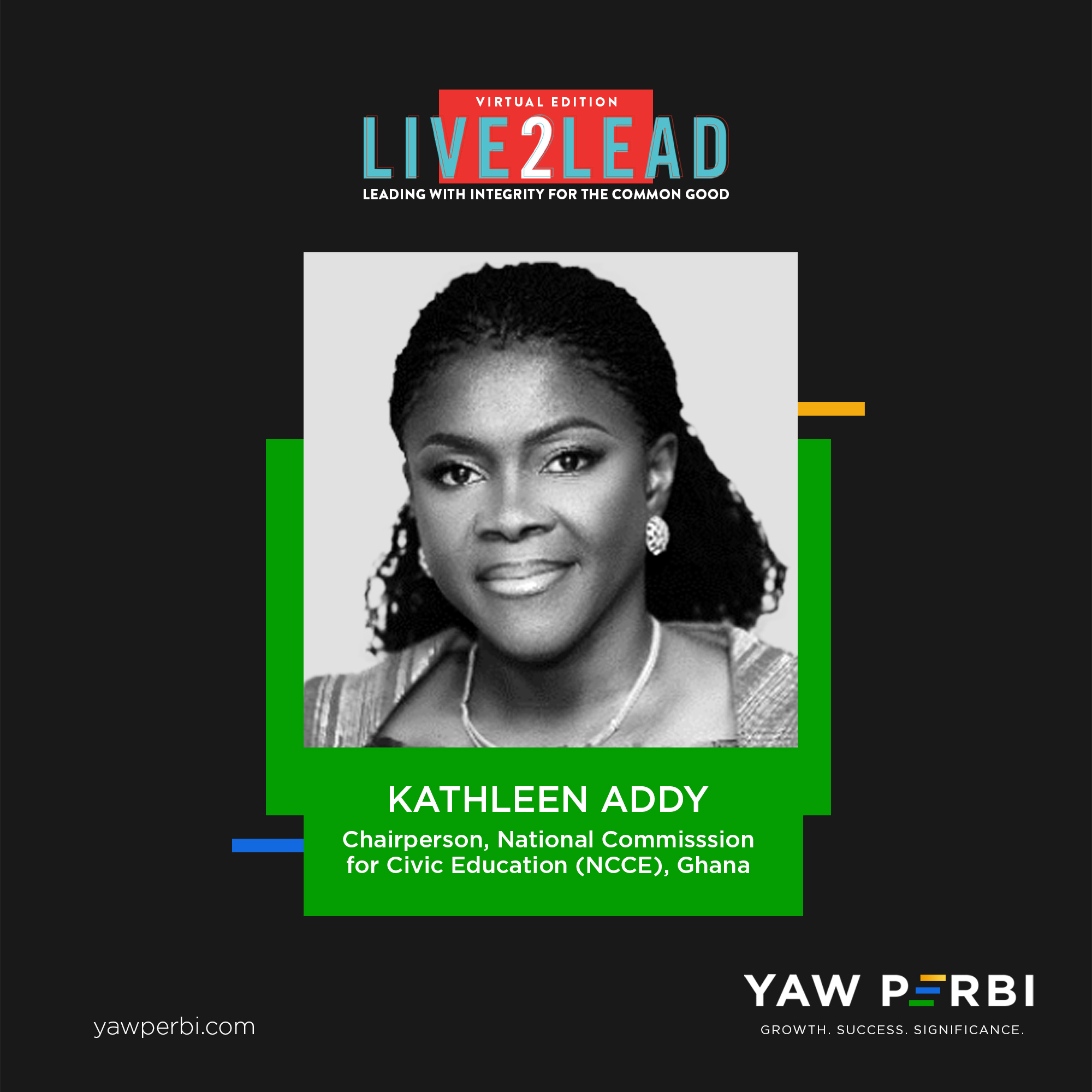
Meet Kathleen Addy, the Lady with Gravitas for Civilitas
Kathleen Addy is the Republic of Ghana’s National Commission for Civic Education (NCCE) chairperson, appointed in 2022 by the president of the Republic from her Deputy Chair of the Commission role. Ms. Addy had been in charge of Finance and Administration since 2017. Kathleen is highly regarded as a civic activist with particular interest in women’s empowerment as well as accountable and responsive governance, and has supported different civil society groups fighting for good governance and women’s rights in Ghana.
She was once upon a time a Research and Communications Officer at the Center for Policy Analysis focusing on Women’s Economic Empowerment and was the Afrobarometer Communications Manager at the Center for Democratic Development. Kathleen holds a first degree in Psychology and a Master’s in Communications from the University of Ghana, Legon. She is also an alumna of Achimota School and Holy Child School. In her role as a Chairperson of the NCCE, Ms. Addy brings her expertise and vast experience in the development sector, as well as her passion and drive to bear on the work of the commission.
Gravitas was one of the ancient Roman virtues that denoted “seriousness.” It is also translated variously as weight, dignity, and importance and connotes restraint and moral rigour. It also conveys a sense of responsibility and commitment to the task. Kathleen’s got gravitas. Meanwhile cīvīlitās, the feminine Latin word that speaks to politics and the art/practice of government, also connotes courteousness, politeness, dignity, civility, moderation, and restraint. Not only has Lady Kathy got all these, she has a passion to see every Ghanaian born of a woman possess these, and in abundance too, hence her passion for civic education.
INTEGRITY AND A NEW GHANA
At the just-held Live2Lead conference, the First Lady of Civilitas began her submissions with a chuckle, as she noted with candour how the public sector from which she hails has become the poster child for lack of integrity. She herself shared how coming from think tanks and CSOs, she got a culture shock when she first landed in the public service in 2017. “A lot of people don’t even know what the wrong thing is because wrong has been normalized,” she asserted.
But she ended with a ROAR. By the time she had shared how ‘friends and family’ who expected favours like getting an upper hand in the commission’s hiring had had a rude shock that she only gave them enough support to follow due process, the audience would doff their hats for such a principled public sector leader. We trust that the many public sector folks sponsored to attend were inspired to also lead with integrity, right in the corner where they are.
CONCLUSION
Live2Lead Ghana was wildly successful. We give glory to God. The plan to strategically rope in the public sector was a good idea and well-executed. We are grateful to all our corporate partners whose generous sponsorship made this possible, and the participation of several emerging leaders from our schools and universities. The dozen or so organizations and companies who ensured 10 or more of their leaders were present are true patrons of a Ghana that can be lead in integrity for the common good. One bank sponsored nearly 60 of their leaders, while another invested in 40 of theirs. Poco a poco, intentionality about leadership development will become a culture that rewires our nation for growth, success and significance.
God bless our homeland Ghana with gravitas for civilitas, and make our nation great and strong.
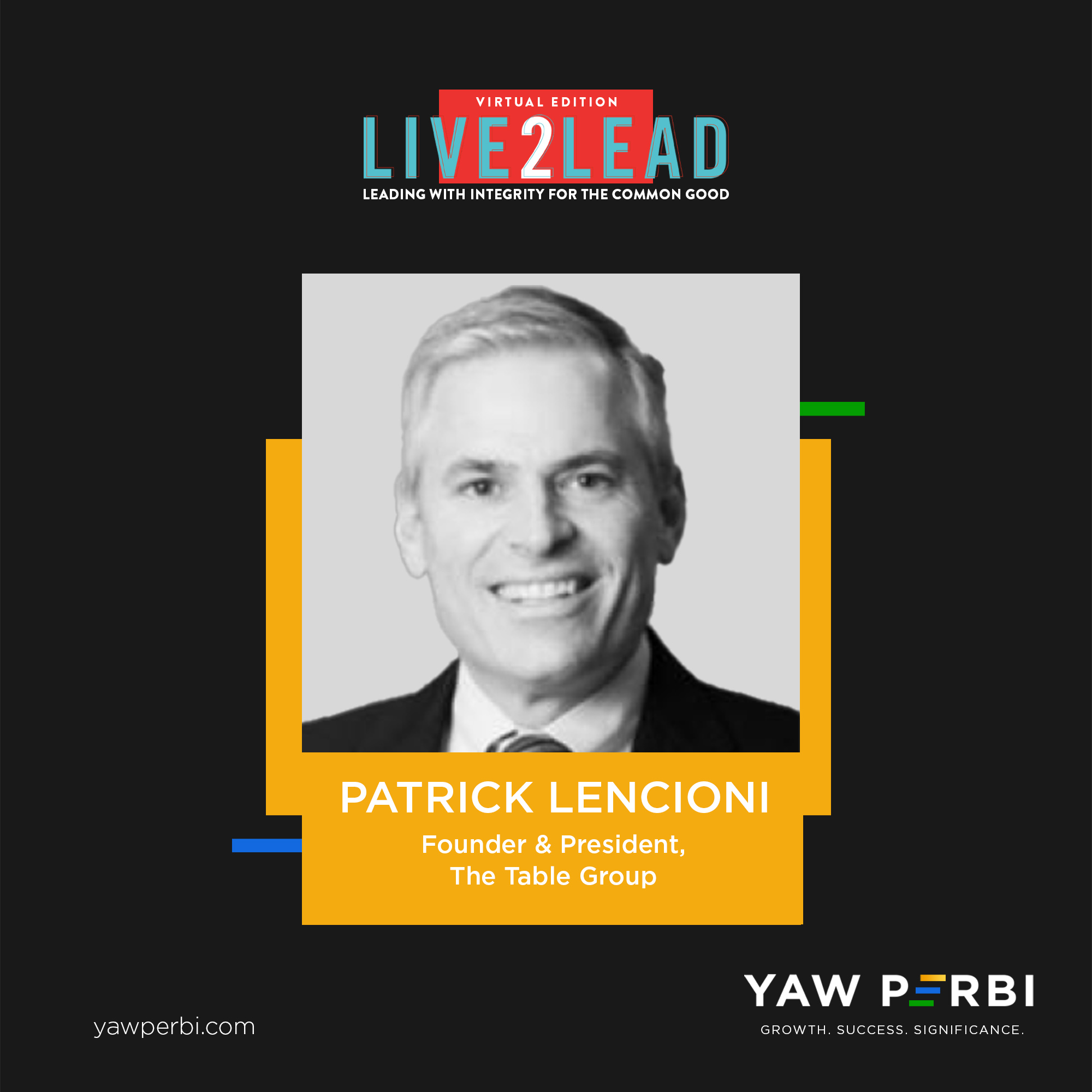
Meet Patrick Lencioni, the Workplace Guru.
There’s no one I enjoy hearing about teams, meetings and workplace dynamics like Patrick Lencioni. Patrick is an American author of books on business management, particularly in relation to team management. He is best known as the author of The Five Dysfunctions of a Team, a popular business fable that explores work team dynamics and offers solutions to help teams perform better. On a recent trip to southern and eastern Africa, his cautionary tale to CEOs published in a book by the title The Motive, was my jolting companion. It brought me back to my senses as CEO of a few enterprises.
Lencioni is Founder and President of The Table Group, a management consulting firm specializing in executive team development and organizational health. As a consultant and keynote speaker, he has worked with senior executives and executive teams in organizations ranging from Fortune 500s and high tech start-ups to universities and non-profits. He also gives talks on leadership, organizational change, teamwork and corporate culture. He is frequently interviewed for national media including features in the Wall Street Journal and USA Today.
SIX TYPES OF WORKING GENIUS
At the annual John Maxwell Live2Lead conference last week–the Ghana site hosted nearly 600 leaders LIVE! with thousands more to benefit through rebroadcasts–we heard from Patrick Lencioni about his groundbreaking new model that provides a deeper understanding into our workplace and team dynamics.
The six types of working geniuses together form the word WIDGET, symbolized by six gears working perfectly synergistically well together. W is the genius of Wonder, I the genius of Invention, D the genius of Discernment, G the genius of Galvanizing, E the genius of Enablement and T the genius of Tenacity. In the near future we shall provide a fuller blog delving into further details about these six geniuses. In the mean time hear Pat the sage, “If you want to be successful and fulfilled in your work, you must tap into your gifts. That can’t happen if you don’t know what those gifts are.”
THINGS DON’T HAVE TO BE THIS WAY
Pat explained how people don’t understand their personal areas of working genius, which impacts their ability to identify work opportunities that would be most meaningful to them, as well as disallowing organizations, teams, and families to help individuals tap into their true working genius, resulting in a failure to reach one’s true potential. But things don’t have to be this way. This tragedy is avoidable, as Pat shared how you can identify your working genius and understanding which one of the six geniuses both you and your teammates are. Contact us, the Live2Lead team, if you and your team would want to test your genius to become all you really could be. There are no dumb or lazy people on the planet or on your team; only geniuses who are yet to find and fire up what makes them tick!
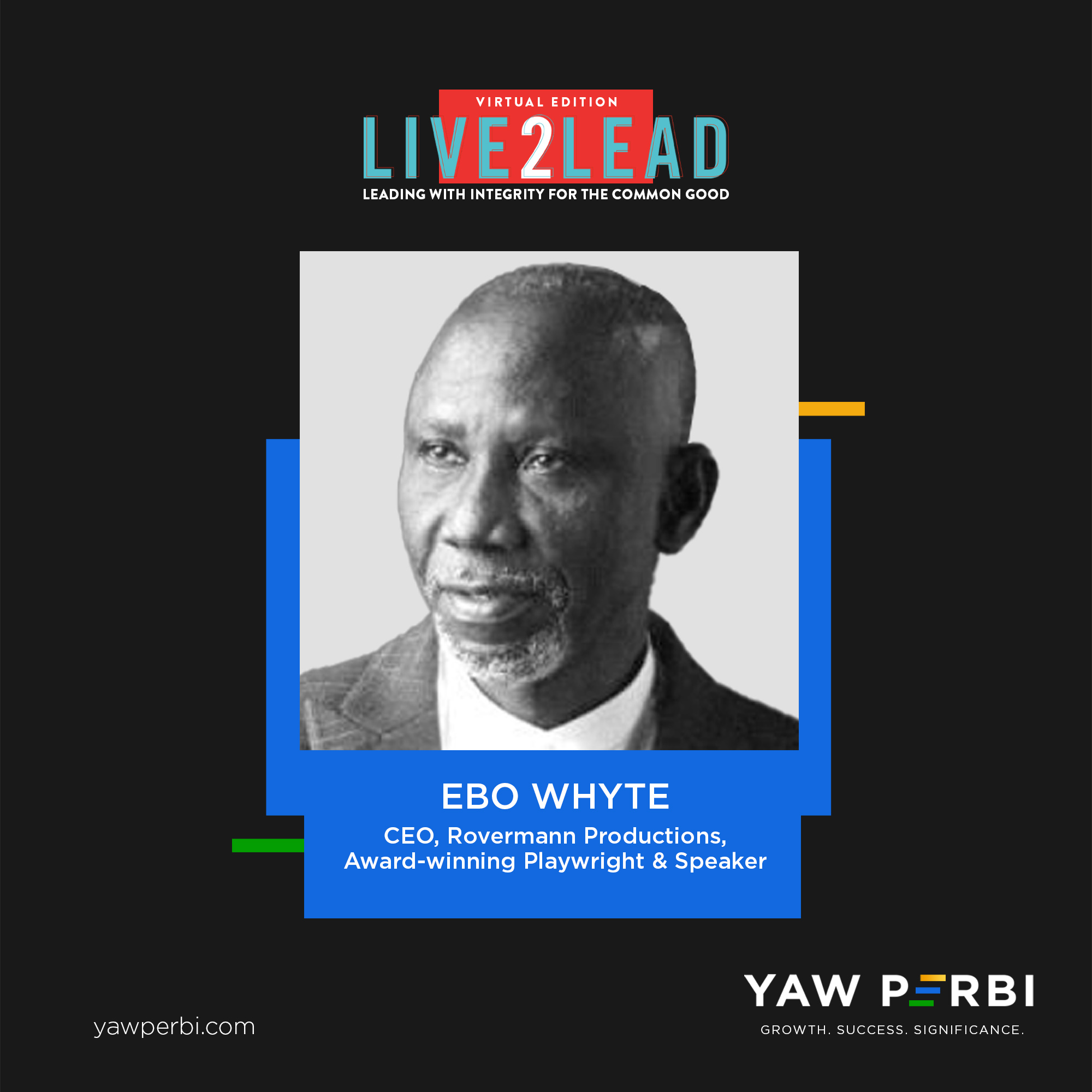
Meet Uncle Ebo, the People’s Uncle.
Everyone calls him “Uncle” without even thinking twice about it. Whether young enough to be their son or old enough to be their grandpa, “Uncle” is everyone’s uncle. A voice of reason, counsel in season, James Ebo Whyte, affectionately known nationwide as “Uncle Ebo” is the people’s uncle, hands down.
Mr. James Ebo Whyte is the CEO, heart and brain behind Roverman Productions. He is nationally acknowledged as an accomplished, award-winning playwright and highly sought-after motivational speaker. James Ebo Whyte constantly challenges Ghanaians to think more about the world they live in and the contribution they make to it. Just the day before the October 7, 2022 Live2Lead conference at which he was speaking, he unveiled to his drama troupe his 51st play in fourteen years! A hearty congratulations to the prolific playwright.
INTEGRITY IN THE ARTS & ENTERTAINMENT INDUSTRY
At Live2Lead 2022, Uncle Ebo was the only gentleman among three distinguished leading ladies from the corporate and entrepreneurship spaces as well as the public sector. Their first job was to respond to the submissions on “Leading with Integrity for the Common Good” made in the earlier hour by Patrick Awuah, founder and president of Ashesi University. Uncle Ebo held our attention as he raised issues of integrity in the arts & entertainment segment of Ghanaian society that he had with intentionality decided to counter, like giving kickbacks from corporate sponsorship. He uttered with conviction, “there are sponsorships we know we’ll never get for our plays because of this.” And he’s fine with it, as he knows that integrity comes at a cost.
One of the most amazing feats of Roverman Productions has been putting up a new play every quarter for the last decade-and-a-half and resolving to always start on time, also a matter of integrity. In fact, one of the participants at Live2Lead, a corporate governance expert, interjected that one reason she chooses to go and see Ebo Whyte’s plays is that she can guarantee they would commence on time. Again, Roverman has gone against the tide by ensuring pristine toilet facilities at their play venues and three levels of security at events to ensure patrons have a heavenly experience and leave with no bitter taste in their mouths. To the people’s uncle, excellence in these areas is a matter of integrity.
OF TEENAGE FOLLY AND GAMBLING
We intentionally wanted to leave the Live2Lead conferees on a note of hope, especially hope in Ghana, and Uncle Ebo did not disappoint. While admitting we have mega challenges in the nation he reminds us that we’ve not only been in worse times but also that in the annals of nation building globally, at 60 years Ghana is only a teenager. The national happenings that leave us in consternation are akin to teenage tantrums and this too shall pass. We do have quite a degree of national folly though, which we need to be cured of, he confesses.
Uncle Ebo’s belief in Ghana is so solid that his parting words were the following: “Whoever bets against Ghana will lose.” For a full buffet of this scintillating conversation look out for a recording of the hitherto livestreamed video (currently only available to paid participants) or invite Live2Lead to rebroadcast in your context (company, community, church etc). You don’t want to miss Live2Lead 2023 on October 6, next year, Deo volonte. Pinned on the first Friday of each October, National Leader Day after National Leader Day, building a leader at a time and one centre of excellence at a time, we shall surely get to the Ghana we want. And who knows? Perhaps sooner than other nations have.

Meet Eric Thomas, a Fireball to Light a Fire Under You!
Eric Thomas, Ph.D., is a critically acclaimed author, world-renowned speaker, educator, pastor, and audible.com Audie Awards finalist. ET, as he is better known and affectionately called, has taken the world by storm, with his creative, common-sense approach to living a successful, satisfying professional and personal life. Through a significant social media presence and regular domestic and international tours, “ET, The Hip Hop Preacher” has become a global phenomenon!
As CEO of his Consulting Firm, ETA LLC., Dr. Eric Thomas has led his team through the doors of dozens of hugely successful organizations and Fortune 500 companies such as General Electric, Quicken Loans, AT&T, Nike, Under Armour, New Balance, and UPS and continues to consult for major league sports franchises within the MLB, NBA, NFL, MLS (various United States sports leagues).
YOU OWE YOU
That’s Eric’s philosophy of life, and his topic at Live2Lead on October 7: You Owe You: Ignite Your Power, Your Purpose, and Your Why. Come learn the key principles of how to turn a mentality of struggle into strength, resulting in enduring success. Eric Thomas shares his urgent message to stop waiting for inspiration to strike and take control of your life, using stories of his past and lessons learned as examples.
He will help identify how you can rewrite your life’s script and capture the attention of all kinds of people in a multitude of different environments. Sharing these critical first steps will help you with understanding yourself and the world around you, finding your why, accepting that you may have to give up something good for something great, and constantly stretching toward your potential.
Pump up your personal, professional and leadership game at this year’s Live2Lead conference. Register now through this link. Nag your organization until they join this rising movement of learning leaders that will transform society by becoming a Patron of Live2Lead. A Patron company is one that sends at least 10 leaders to Live2Lead, and this year they range from mining companies like Goldfields to banking greats like Stanchart. There’s no way we can have at least 100 such Patron organizations and companies in Ghana and not transform the nation, one leader at a time, one centre of excellence at a time. Together we can change our country and continent for the better! Let’s do this! Register here, and NOW.

Meet Patricia Obo-Nai, Telecom CEO of the Season.
Patricia Obo-Nai is one of the most influential CEOs in Africa, a leading figure in the telecom sector. Don’t let her cool fool you. It is not for nothing that she is not only the first ever female CEO of Vodafone Ghana but the first Ghanaian to do so. Period. Her outstanding leadership has been recognized by many, including Mobile Magazine Africa, which named her the “First Lady of Mobile in Africa.”
Patricia started her career as a Network Planning Engineer with Millicom Ghana Ltd. (Tigo) in 2000. She holds a BSc in Electrical/Electronic Engineering from the Kwame Nkrumah University of Science and Technology (KNUST) and an Executive MBA in Project Management from the University of Ghana Business School. Regarding international education, she holds executive education qualifications from both sides of the Atlantic, Kellogg School of Management in the USA and INSEAD in France. Patricia is passionate about the future of young people and women in the digital age and is a vigorous advocate for STEM. She has been on several platforms, including the UN General Assembly panel sessions, advocating for youth and women.
Among Mrs. Obo-Nai’s dozen plus prestigious awards are the recent Women Leadership Excellence Award at the Ghana CEO’s Network Summit and the Africa’s Most Respected CEO Awards in the continent’s Telecommunications Industry, both of 2021. She is a CEO of CEOs.
WHAT IS GOOD TECHNOLOGY WITHOUT GREAT VALUES!
Even before getting into the so-called ‘soft’ issues of leadership, like integrity, as an electrical engineer Pat knows the hard consequences of conductors, currents, circuits, capacitors and such that have no integrity. Nothing of enduring value happens without integrity. At the October 7 Live2Lead conference this year, Patricia will exhibit through her life and leadership how “the glue that holds all relationships together–including the relationship between the leader and the led–is trust, and trust is based on integrity” (Brian Tracy).
Mrs. Obo-Nai will share how she manages to lead with integrity for the common good despite the high corruption in Ghanaian society, everywhere one turns. During an April visit to Ashesi earlier this year, the celebrated CEO of Vodafone Ghana highlighted lessons from her 20-year career. Embedded in those gems was a reminder to students about the importance of having integrity.
Tune up your personal, professional and leadership game at this year’s Live2Lead conference. Register now through this link. Nag your organization until they join this rising movement of learning leaders that will transform society by becoming a Patron of Live2Lead. A Patron company, like Patricia’s own Vodafone, is one that sends at least 10 leaders to Live2Lead. There’s no way we can have at least 100 such Patron organizations and companies in Ghana and not transform the nation, one centre of excellence at a time. Together we can change our country and continent for the better! Let’s do this! Register here, and NOW.

